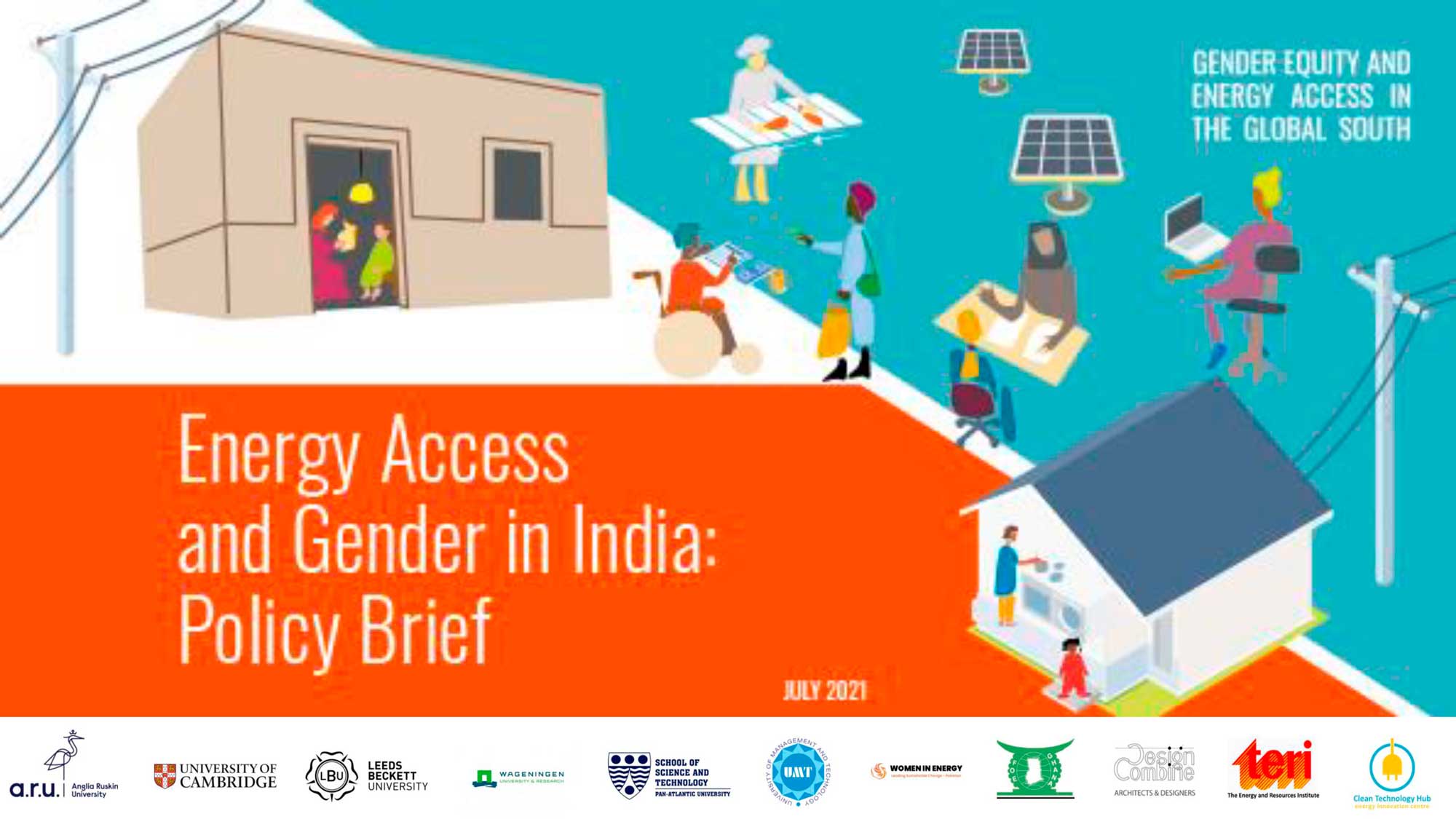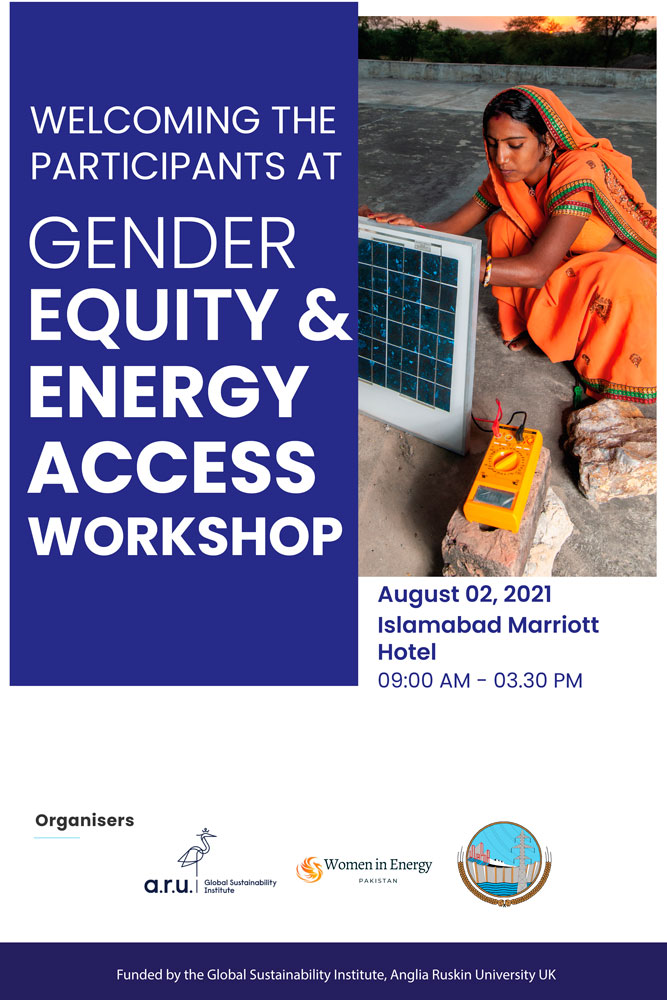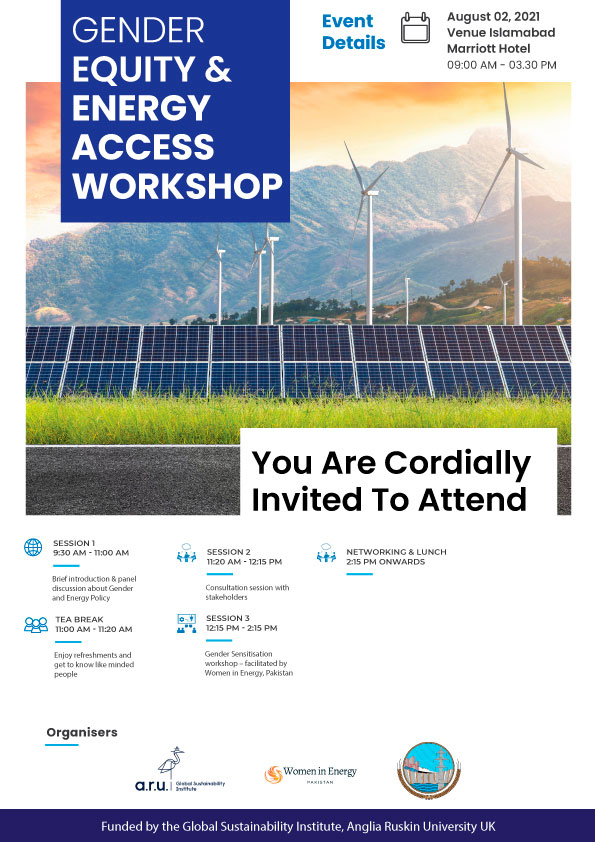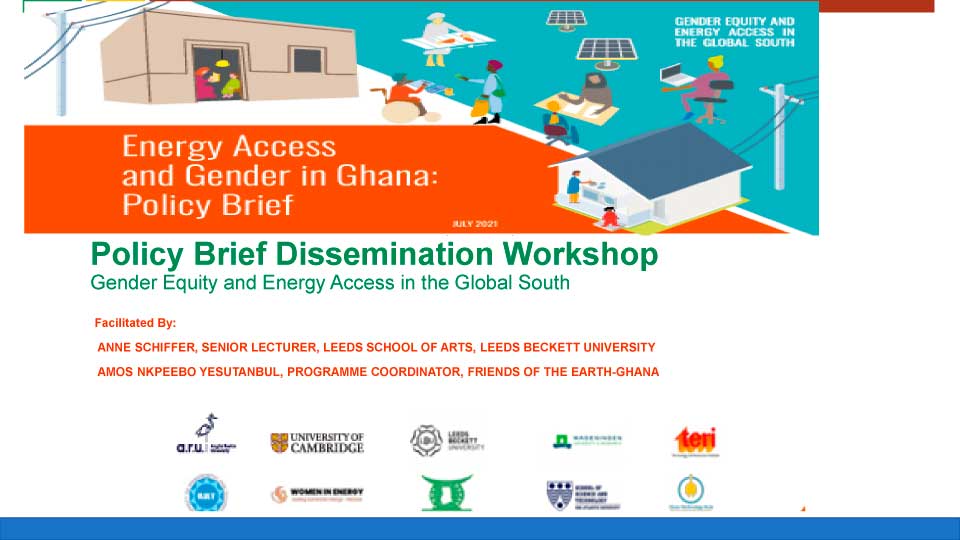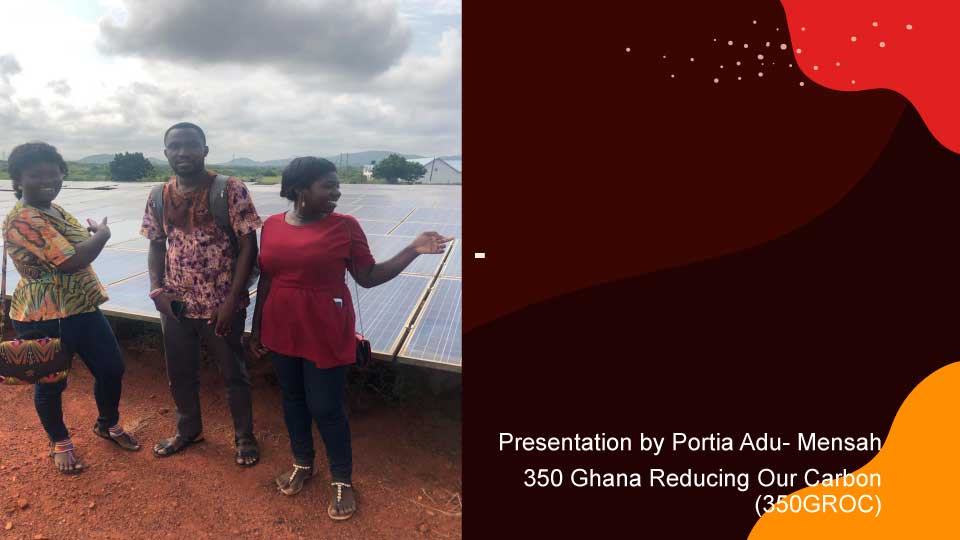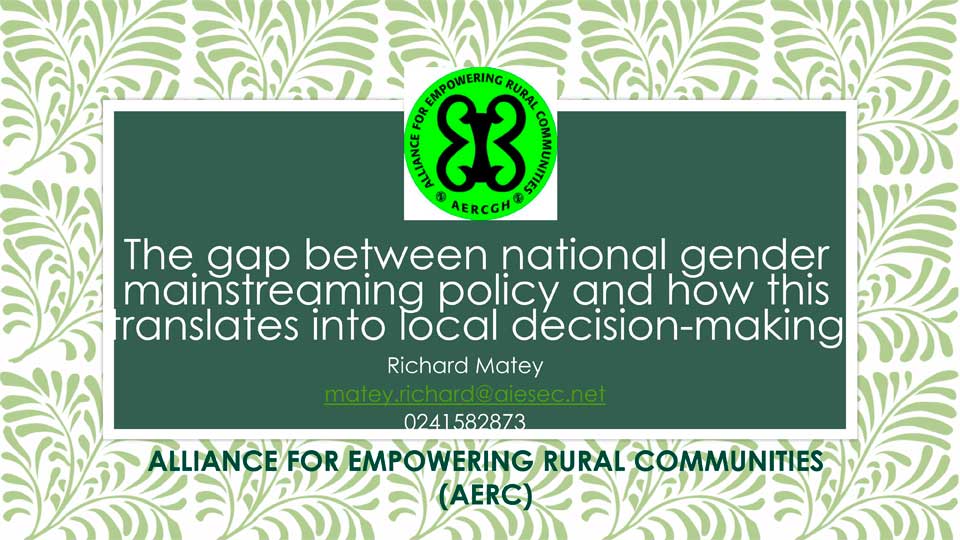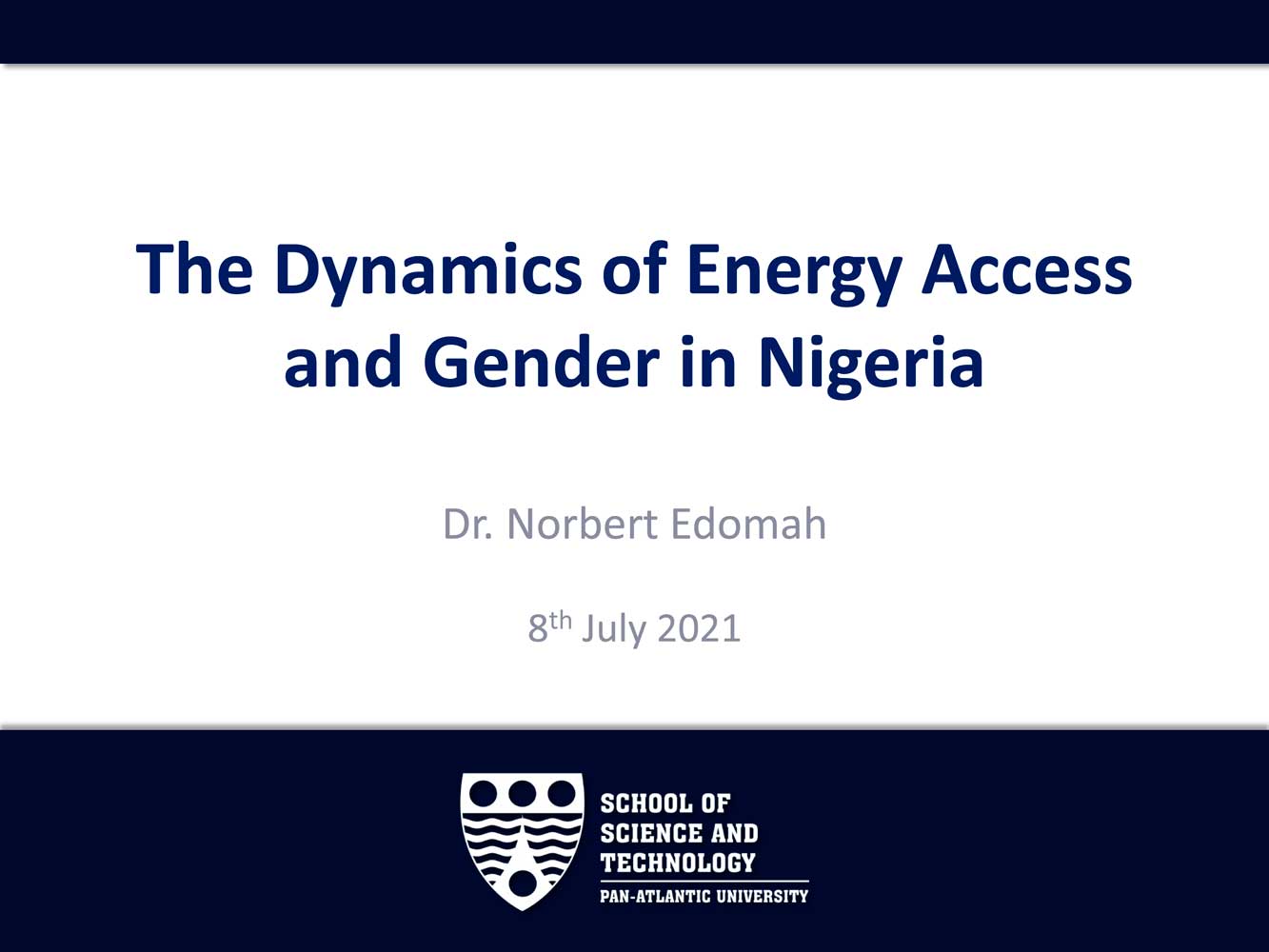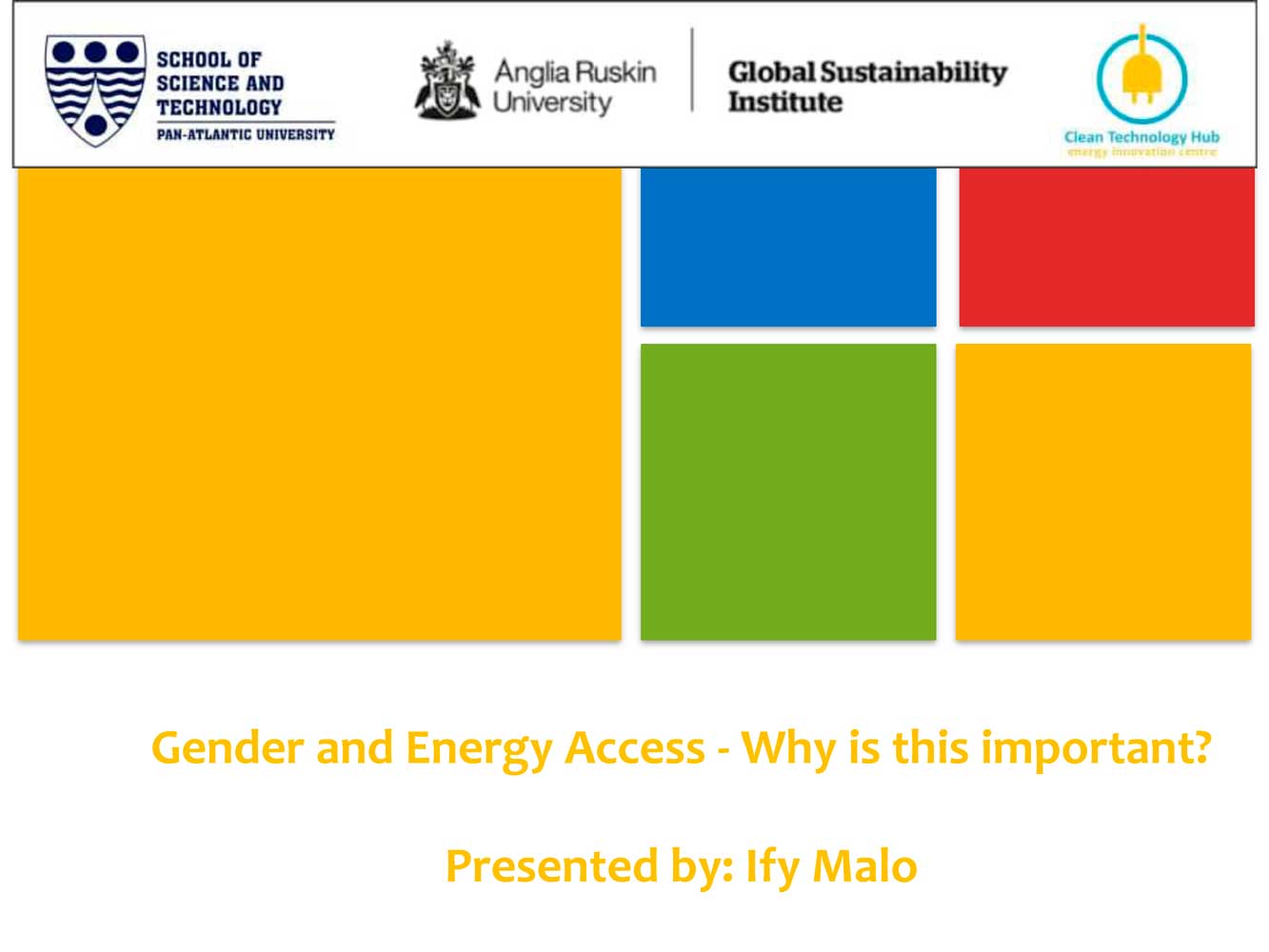Gender Equity and Energy Access in India: Policy Recommendations, 14 June 2021 and 13 August 2021.
Two connected virtual workshops were conducted as part of closing proceedings for the India leg of this research project. Both workshops were organised by the core Indian research team of Sunrita Dhar-Bhattacharjee (Anglia Ruskin University, UK), Debajit Palit (The Energy & Resources Institute, India), and Monolita Chatterjee (Design Combine, India).
Workshop 1: 14 June 2021
This first Indian workshop presented the project’s draft recommendations for tackling gender equity and energy access in India, to the participating panel of experts (12 members out of the 20 interviewed participated), as per the findings that had emerged from interviews. Their feedback was collated, and fed into the development of the Indian Policy Brief.
The workshop began by Sunrita Dhar-Bhattacharjee giving a brief introduction to the research project, followed by Debajit Palit summarising the background context for India regarding gender equity and energy access. The core of the workshop centred around Monolita Chatterjee’s presentation of the key findings from the interviews conducted, focusing in particular on the challenges as perceived by experts operating within the energy sector and the solutions they suggested.
Key feedback from this workshop were:
- Our preliminary policy recommendations needed to be more targeted in terms of sectors, as specific steps could be adopted for implementation at policy or programme levels.
- It was noted that as India has moved towards greater grid connectivity, in which India has already made significant progress, DRE systems had been weakened. This has shifted control from the consumer to the supplier, which has also included women usually having least control over access of energy and other resources.
- The energy mix had not been sufficiently emphasised, and thus other energies needed more specific attention from a gender equity perspective.
Workshop 2: 13 August 2021
In organising this second workshop, the core Indian research team secured participation from 35 experts, spanning an array of relevant Indian government departments, ministries, as well as national and international organisations.
The focus of the workshop was on the presentation and discussion of the team’s finalised policy recommendations, alongside the dissemination of a short video prepared for broadcasting such recommendations. Following these presentations, Debajit Palit conducted a roundtable discussion with participants to formulate key actionable steps for implementation of better gendering within energy access sector in India.
Gender equity and Energy Access in Pakistan Workshop, 2 August 2021, Marriott Hotel Islamabad.
This workshop was organised by Hira Wajahat (Stimulus & Women in Energy Pakistan) and Dr Rihab Khalid (Lucy Cavendish College, University of Cambridge), in collaboration with the Pakistan Water & Power Development Authority (WAPDA). Participants were invited from across Pakistan’s energy sector, including representatives from policy bodies, regulatory authorities, electric utilities, international donor agencies, NGOs, social enterprises, and academics working on energy access issues.
The one-day workshop commenced with an introduction to the project by Ms Hira and presentation of the key interview findings for the Pakistan case by Dr Rihab. This was then followed by Session 1 which included a panel response to the policy brief by top energy experts. The panel consisted of Ms Saadia Qayyum from the World Bank PK, Mr Saad Latif from K-Electric; Mr Mehroze Rafique from NEPRA, Mr Zaigham Mehmood Rizvi, Chairman PM Housing Task Force, Brig. Shoaib Taqi (Retd) from WAPDA, Mr Shah Jahan Mirza from PPIB, and Ms Sobiah Becker from FCDO. Each panellist provided a 5-min response to the policy brief, highlighting key issues and next steps for improving gender equity in Pakistan’s energy sector. This was then followed by Q&A from the audience.
Session 2 included a consultation with the workshop participants, convened by Ms Maha Kamal and Ms Aliya Khan from Women in Energy, Pakistan. In a more interactive format, the workshop participants formed smaller groups to identify key challenges and barriers to gender equity in policy and practice. At the end of the session, key highlights were noted and discussed from each group. Session 3, also led by Women in Energy, focused on gender sensitisation including brainstorming activities to identify best practices and way forward towards improved gender equity. The session included case study presented by Ms Farhana Mazhar (Gender Specialist, WAPDA). The workshop concluded with networking over lunch.
The workshop generated positive response and acknowledgment for the importance of gender equity in energy policies and practices and provided the opportunity for open dialogue between representatives across Pakistan’s energy sector. Based on the interactive brainstorming sessions, joint consensus was reached on the following expected outcomes:
- Building consensus towards a gender-responsive energy policy with integrated planning.
- Introducing the importance of community-based solutions and innovation for greater gender equity.
- Building awareness on the need for multidisciplinary energy programs that create better social outcomes in energy, highlighting the need to view energy not just through greater STEM enrolment but developing a systems-approach.
- Strengthening awareness on the need for women in leadership in energy.
- Underscoring the need for data collection bodies at the organisational, local, and national level to ensure the availability of gender-sensitive data and strengthening understanding of gender disaggregated data that currently exists at the Pakistan Bureau of Statistics at the national and provincial levels.
- Developing organisational policies and behaviour that create gender equity (e.g. inclusion of women representatives in hiring committees, creation of sexual harassment committees, Gender-sensitive HR policies, such as flexible working hours, options for working from home, maternity and paternity leaves, day care centres etc.)
Policy briefing on gender equity and energy access in Ghana, 21 July 2021, Centre for Conflict Resolution, Accra.
The workshop was a physical event with two speakers joining online and two joining the event physically. The speakers included:
- Dr. Anne Schiffer; Senior Lecturer, Leeds Beckett University (UK)
- Richard Matey; Alliance for Empowering Rural Communities (Ghana)
- Portia Adu Mensah; National Coordinator,350.org/GROC (Ghana)
- Dipti Bhatnagar; Friends of the Earth International
Each speaker addressed a key challenge that was highlighted in the policy brief in order to generate more context for further stakeholder discussions. The key topics addressed included: Energy finance for women; island mini-grid projects and capacity challenges for women; the gap between national gender mainstreaming policy and how this translates into local decision-making; spatial (rural-urban slums) energy inequalities; and a Gender, Energy and the Transformative System Change Agenda in the context of justice transitions.
In terms of outcomes, the following proposals were made specifically for government, development partners, and civil society organisations as a result of the stakeholder discussions:
- Develop an integrated capacity building programme for local institutions, including metropolitan, municipal and district assemblies to mainstream gender equity into annual development planning.
- Organise a field-based experience-sharing workshop for energy experts on equitable energy access and gender mainstreaming to introduce experts to different alternative solutions.
- CSOs need to lobby and advocate for targeted financing for women entrepreneurs to improve both access to energy and to finance energy investment ventures.
- Strengthen multi-stakeholder awareness creation on energy and gender mainstreaming, engaging Government policy institutions and regulatory bodies, independent power producers, Development authorities (MMDAs) and civil society.
- Liaise with the national data centres (like the Ghana Statistical Service) to establish a data hub on energy and gender equity to promote gender sensitive data availability, accessibility and adequacy.
Gender equity and energy access in Nigeria, 8 July 2021, virtual workshop
A virtual workshop aimed at disseminating the key Nigeria-specific and practitioner-relevant findings of our research was held on Thursday 8 July 2021. Chris Foulds introduced the project, the key project partners and the critical need for why professional practice needs more attention. Ifeoma Malo made a presentation on “why we should care about gender in energy access”. Norbert Edomah, who was a Co-Investigator on the project, presented the key findings on the dynamics of energy access and gender in Nigeria. There were over 70 participants at the webinar present (With more than 110 registering) from a diverse array of stakeholder groups. A major takeaway, as highlighted by the participants, was the need to understand local framings and meanings of energy access before venturing into any form of (infrastructure or policy) intervention.
‘Gendering practices and policies in the South: Lessons for improved equity and sustainability in Pakistan’s domestic energy sector’, at eceee 2021 summer study, 7-11 June 2021.
Rihab Khalid presented a peer-reviewed paper, co-authored with Chris Foulds, at the proceedings of the European Council for an Energy Efficient Economy Summer Study 2021. The paper titled: “Gendering practices and policies in the South: Lessons for improved equity and sustainability in Pakistan’s domestic energy sector”, presented a preliminary analysis of the project interview findings from Pakistan, focusing on the need for better understanding of gendered energy demand in Pakistan’s energy provision policies and increasing women’s representation in the energy sector for improved gender equity.

